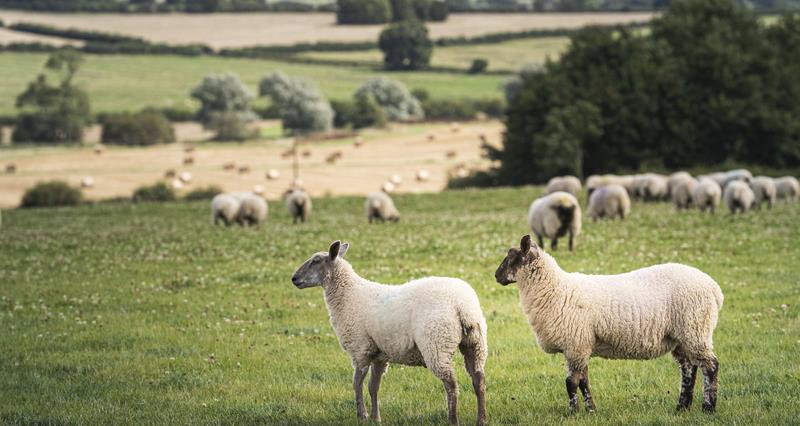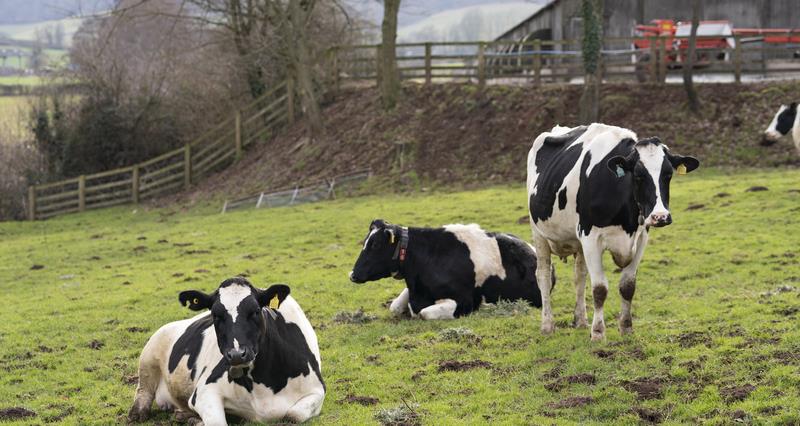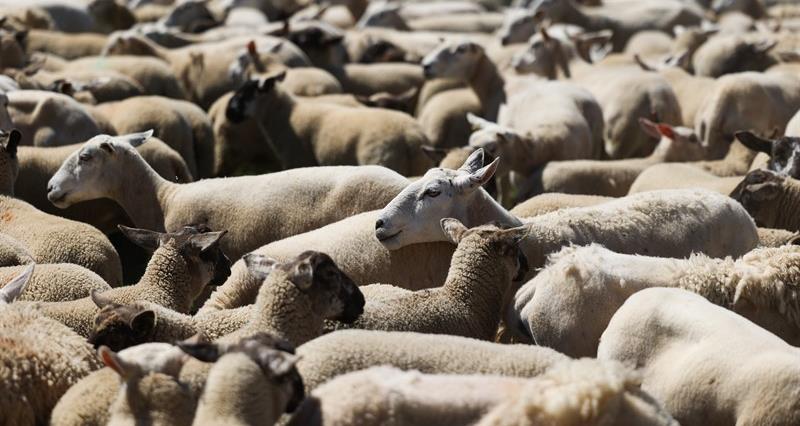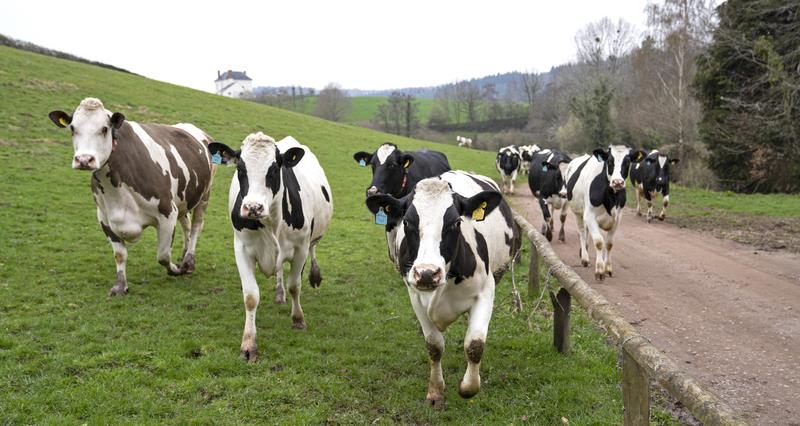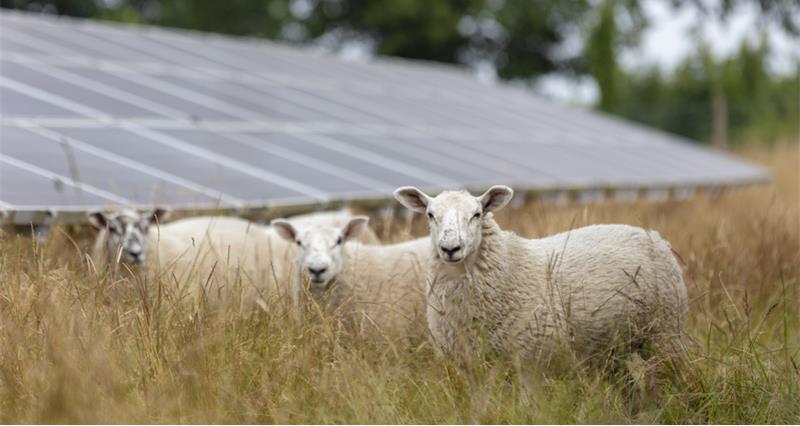NFU President Tom Bradshaw has welcomed a government strategy designed to manage an outbreak of bluetongue. See: GOV.UK | Bluetongue: GB disease control strategy
The plan, which Tom says helps to bring clarity for members, was unveiled following confirmation of a very high probability of BTV-3 (bluetongue stereotype 3) in the UK this year.
In its updated risk assessment (published 7 May), the government warned that the virus could be more widely spread as infected biting midges are blown over from northern Europe.
Movement control to stem the spread
Developed in discussion with the farming industry, the bluetongue serotype 3 disease control framework outlines how disease control efforts will focus on movement control of susceptible animals and their germinal products (semen, eggs, ova and embryos) as a precautionary tool to stem spread of the disease until a safe and effective vaccine for BTV-3 becomes available.
The government is working to facilitate safe access to a BTV-3 vaccine as soon as possible, including actively engaging with vaccine manufacturers.
“It is vital that Defra, vaccine manufacturers, pharmaceutical companies and the livestock and dairy sectors work together to bring a licensed vaccine to market to help minimise the impact of this disease.”
NFU President Tom Bradshaw
Urgent need for collaboration
“We have seen the devastating effect of BTV-3 in the Netherlands and UK farmers are anxious to protect their animals. Without a vaccine it will be difficult to control the disease,” Tom said.
“It is vital that Defra, vaccine manufacturers, pharmaceutical companies and the livestock and dairy sectors work together to bring a licensed vaccine to market to help minimise the impact of this disease.”
“First and foremost, British farmers care about the welfare of their animals and I urge farmers to prepare and remain vigilant for signs of BTV-3 as we enter the high-risk period.”
NFU President Tom Bradshaw
Free testing for high risk counties
Under the plan, free testing will be made available to livestock keepers in the five highest risk counties of Suffolk, Norfolk, Essex, Kent and East Sussex.
This will start in the coming weeks as the risk of incursion increases.
These government funded pre-movement tests will help to prevent undetected spread of disease into lower risk areas.
Post-movement testing from control zones
Upon first detection, and the introduction of zones, that free testing will be extended to include free post-movement test for those farmers receiving any animals from the movement control zones.
To benefit from the free testing, keepers must request the test from a vet contracted by APHA.
Tests must be administered by a government vet as, because BTV-3 is an exotic disease, tests can only be carried out in a government laboratory.
Key bluetongue guidance
Knowing the signs to spot
The NFU continues to encourage abattoirs to get designated and notes the first cases will most likely be through clinical signs. As such, it urges farmers to be vigilant and to ensure staff know what to look for.
Symptoms vary across ruminants, but include fever, lesions, redness of the mouth, eyes, nose, reddening of the skin above the hoof, excessive salivation and nasal discharge.
Dairy farmers are encouraged to be aware of a drop in milk yield as one of the first signs of the disease.
“First and foremost, British farmers care about the welfare of their animals and I urge farmers to prepare and remain vigilant for signs of BTV-3 as we enter the high-risk period,” Tom said.
Bluetongue is a notifiable animal disease. If you suspect it you must report it immediately. Failure to do so is an offence.
Chief Vet urges farmers to remain vigilant
Chief Veterinary Officer Dr Christine Middlemiss said: “Our robust surveillance systems show we have now entered the period where biting midges are more active, and we know that the likelihood of bluetongue virus entering Great Britain is increasing.
“Despite the increase in midge activity, the current risk of transmission has not changed, but I would urge farmers to remain vigilant and report any suspicions to the Animal Plant Health Agency.”
More from NFUonline
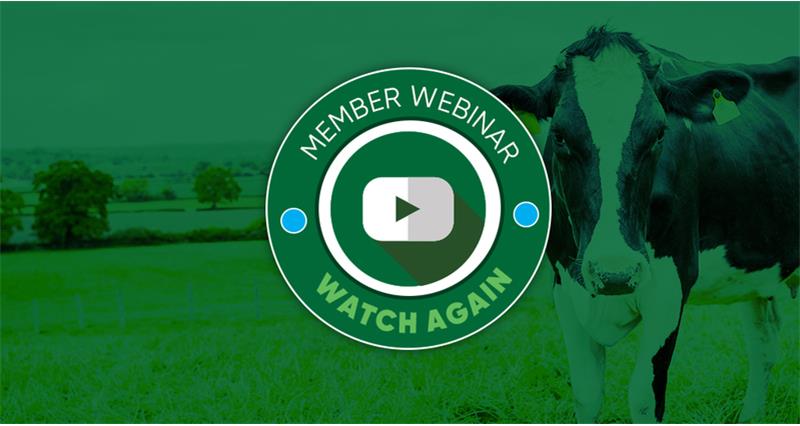
Watch again: Bluetongue latest with the UK's Chief Veterinary Officer
